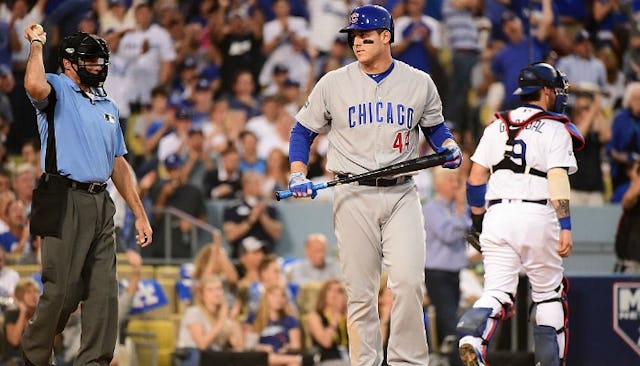Teaching Our Kids Grace And Humility In A World Of A**holes

Like most 10-year-old boys, my son is a sports fanatic. He lives and breathes all things sports. He catches up on the latest news on SportsCenter in the morning, checks stats in the afternoon, and watches the games in the evening.
As parents, my husband and I are happy that our children have a healthy love of sports, from baseball to basketball to water polo. As a former college athlete, I am well aware of the lessons that can be learned from athletics — things like teamwork, hard work, and confidence. And while my son is far from a star athlete, I’m thrilled that he is learning some of those lessons too.
The joy and life lessons gained from playing sports can also be found in watching sports. Unfortunately, these days a lot of what our kids absorb while watching professional athletes is negative. They are inundated with messages of cockiness, temper tantrums, and assholery. They hear the stories on ESPN about the basketball star arrested for domestic abuse. They see the football player throw a water bottle on the sidelines and arguments between players and coaches and referees, and they notice that professional teams don’t shake hands with each other at the end of the game, even though this is a part of every single one of their own games as kids.
At some point, it seems that playing sports becomes more about being a competitor than being a human. And this worries me. Our kids witness the anger and big emotions of sports, because these are the things that make headlines and grab attention. But what about the other stuff? What about the teamwork and camaraderie and basic human decency that’s the essence of what sports should be about?
One night a couple years ago, our family settled in to watch our beloved Chicago Cubs battle the Dodgers in a critical game. Emotions were undoubtedly high, as they always are in high stakes sporting events. But while there were a few instances of adults behaving badly, there were also quiet moments — moments that could have gone unnoticed and unrecognized.
In the top of the fifth inning, Cubs slugger Anthony Rizzo (who was in the dredges of a huge slump) didn’t agree with the umpire’s call. Thinking the pitch was a ball, Rizzo started to walk to first base — a move that drives umpires absolutely mad. The ump called him back to the plate and Rizzo was, obviously and understandably, pissed. (Though he crushed the next pitch with a home run, so he probably got over it.)
This is the kind of thing that happens all the time in baseball, in sports, and in life. A player disagrees with a call, gets pissed, and then everyone moves on. Players are used to it. Umps are used to it. Fans are used to it. We, as humans, are used to it.
Which is why what happened later in the game is so remarkable. Instead of just moving on, Rizzo did the unthinkable — he apologized.
At his next at bat, he is heard saying, “My fault on that.”
“Your fault for what, brother?” the umpire, who was wearing a mic, was heard saying. Obviously, apologies aren’t something umps and refs are used to hearing in professional sports.
Rizzo stammered his apology, but the umpire Ángel Hernández assured him it was all good. “Come on. You’re good, bro. You’re awesome with us. No, no worries. You’re competing. I understand. Don’t worry. You know what’s best of it? You come back and tell me that. That’s how good of a guy you are.”
A good guy indeed.
And while my family celebrated a Cubs’ win that night, listening to these two gentlemen — player and umpire— show each other such kindness is what brought me to tears. I’ve listened to the tape several times, both with my kids and alone, and it still blows me away. It’s easy to become cynical and pessimistic about this hostile and cruel world we live in, and we can fret about whether our children are seeing good role models and learning the right lessons from sports. We can get so swept away in the heated emotions and stress and high stakes of not just sports, but of our lives, that we overlook these precious moments of grace and humility and kindness. We can forget that these gems of goodness are all around us. And, what’s worse, we can take these little things that are actually the big things for granted.
I’ll be honest, there are times when I grow weary of explaining the questionable behavior of athletes and other “role models” in the public eye. I get tired of telling my kids to not act like the people they see on the television or news. I’ve run out of answers to their questions about why adults don’t act with the same basic principles of human decency we teach our children. I worry about teaching them to be kind and decent humans when they see so many assholes around them.
But then there are moments like this one. This is how decent humans behave. This is humility, kindness, and grace. This is how we should treat each other. And these are the kind of role models I want my kids to have — not because they are star athletes or professional successes, but because they are two imperfect humans doing their best to be good people.
This article was originally published on